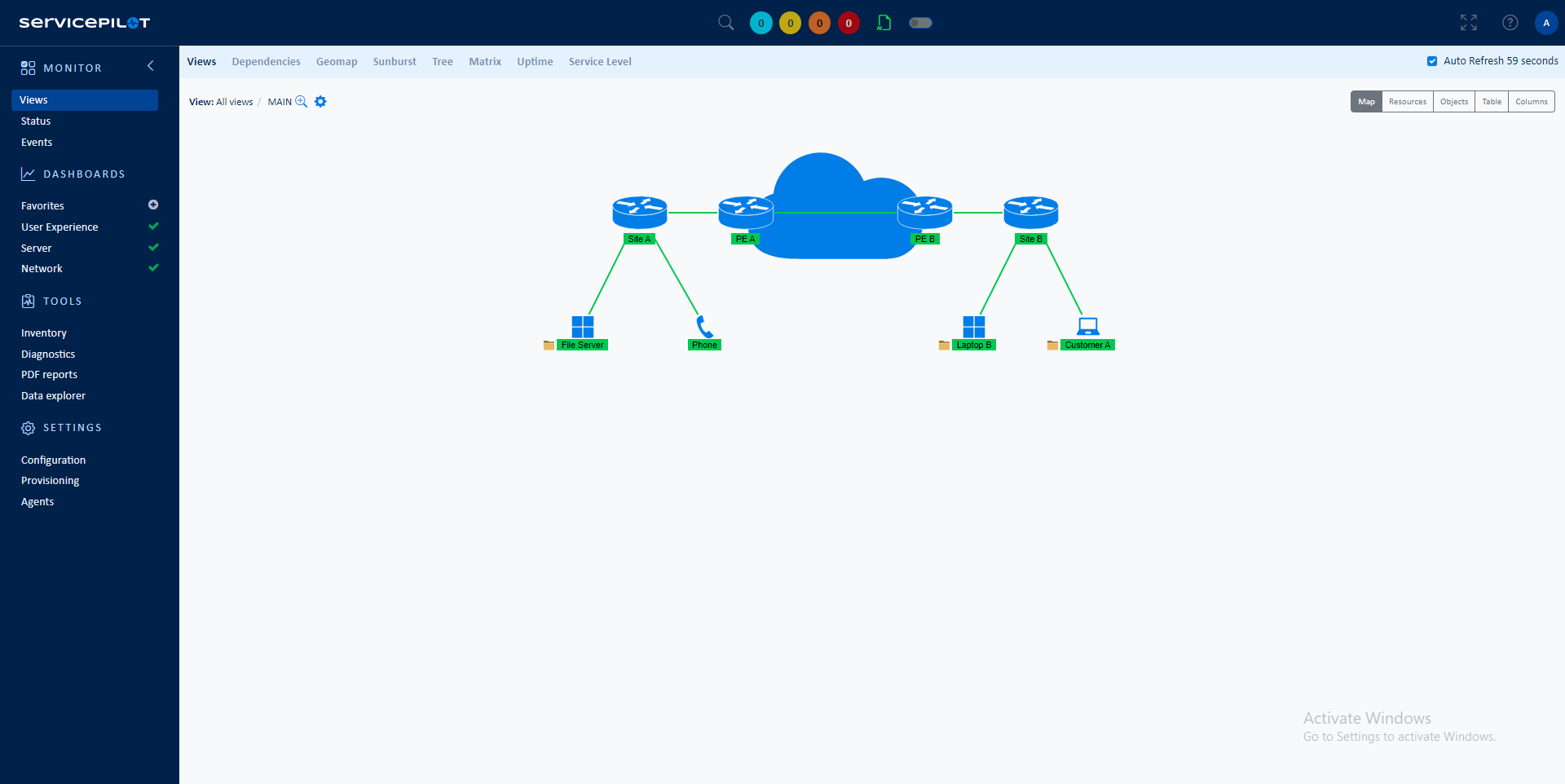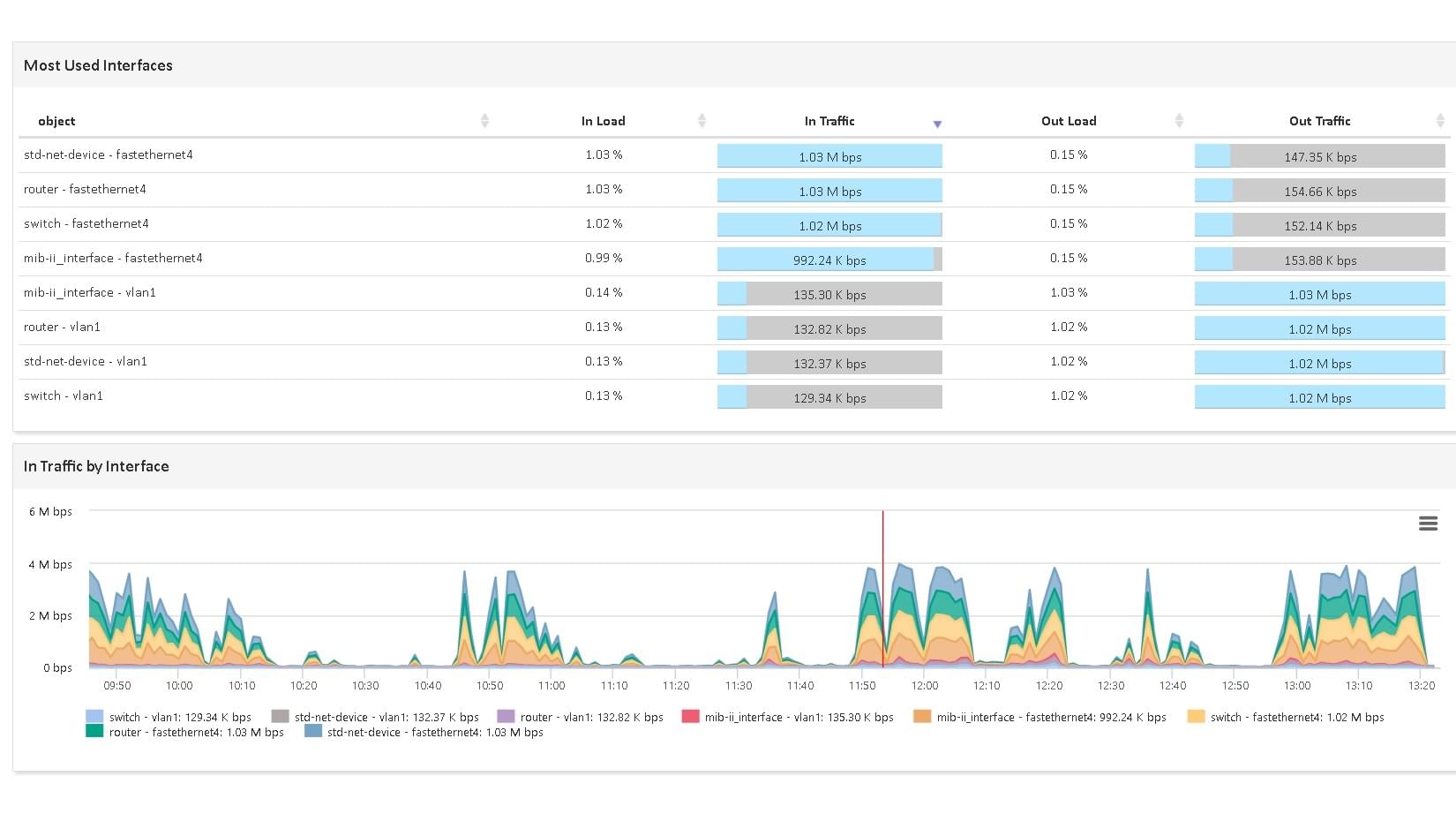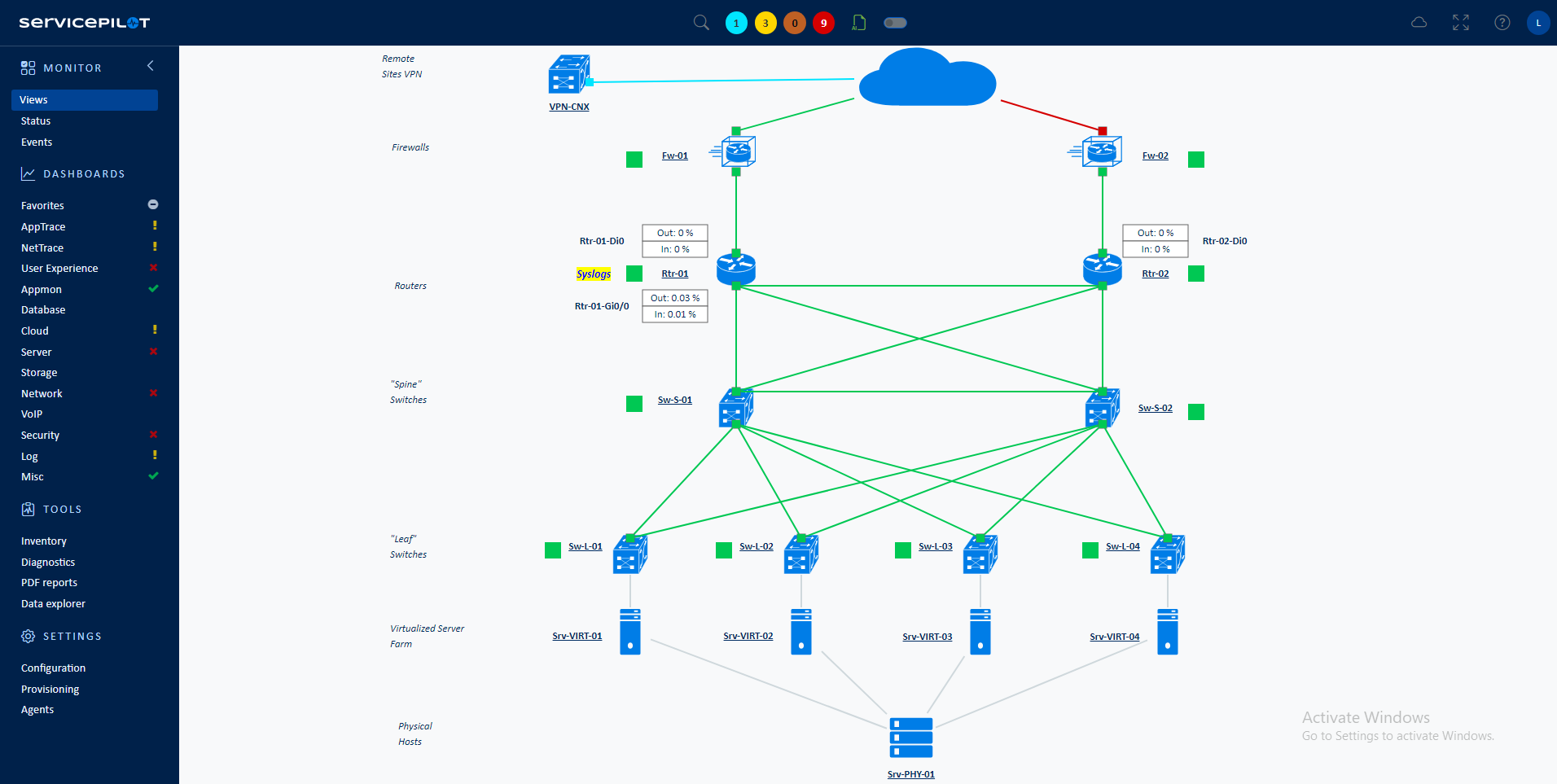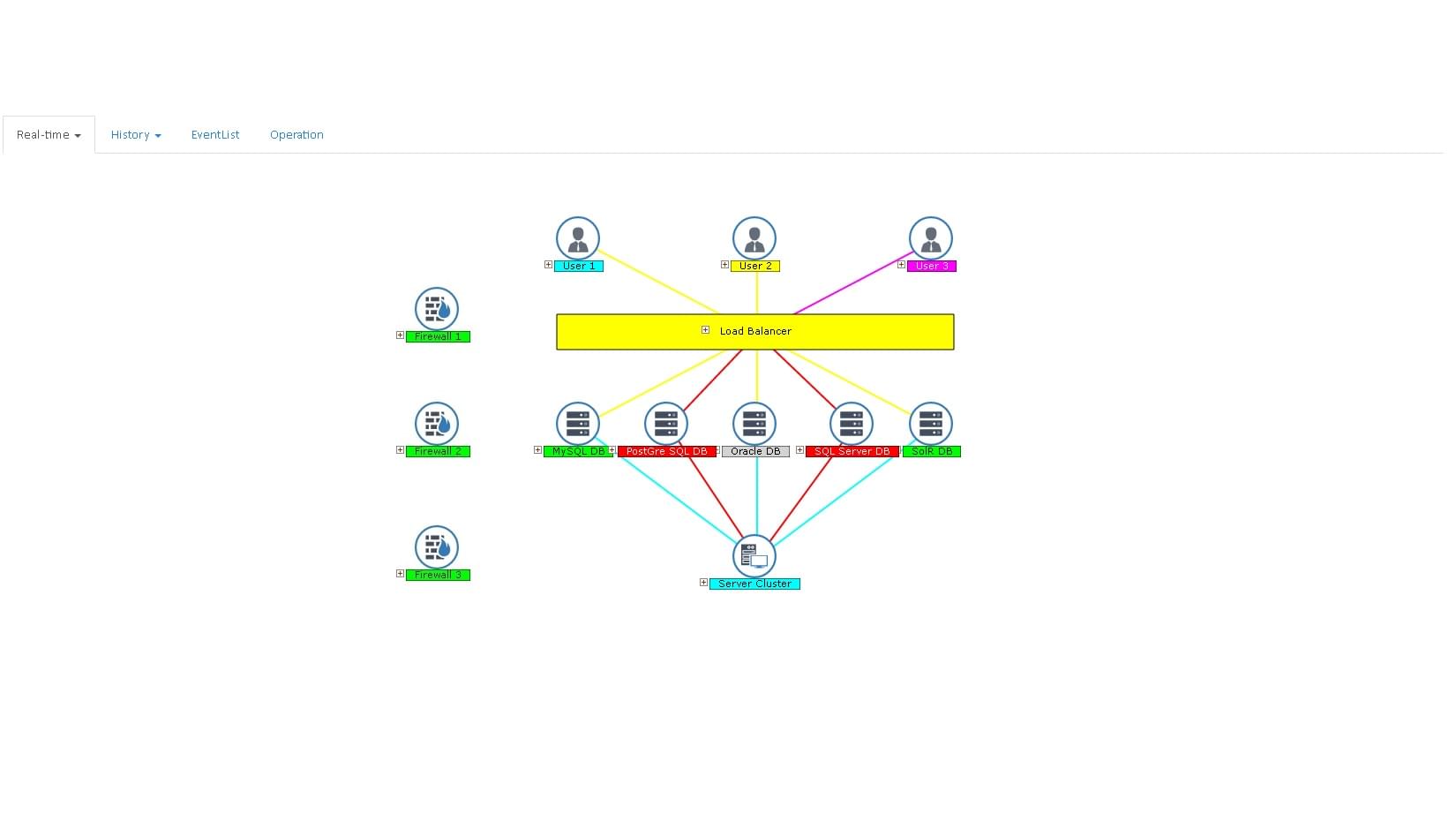What is the BGP Routing Protocol?
The Border Gateway Protocol (BGP Routing Protocol) serves as a fundamental exterior gateway protocol, predominantly used within the infrastructure of the Internet. Its chief function lies in the exchange of network accessibility information, commonly known as prefixes, between distinct Autonomous Systems (AS).
By facilitating such intercommunication, BGP effectively governs the routing of packets across the Internet. BGP is designed to ensure that each AS, a distinct network under a single technical administration, learns about the routes to other AS. It thus maintains a robust, efficient, and scalable mechanism for information exchange, contributing to the Internet's resilience and dynamic nature.
How to monitor a BGP Routing Protocol enabled device?
ServicePilot makes it very easy to monitor BGP Routing enabled equipment. Simply configure the SNMP interface of the BGP enabled device. Then use the ServicePilot web interface to add a resource from the ServicePilot network-routing-bgp package.
How to install a routing-bgp resource?
- Use your ServicePilot OnPremise installation or a SaaS account.
- Add a new routing-bgp resource via the web interface (
/prmviewsor/prmresources) or via API (/prmpackagespage), the default ServicePilot agent or another agent will be provisioned automatically.
Details of the routing-bgp package are located in the
/prmpackagespage of the software.
Benefits
ServicePilot enables you to deliver IT services faster and more securely with automated discovery and advanced monitoring features.
By correlating the technology ROUTING BGP with APM and infrastructure monitoring, ServicePilot is able to provide a more comprehensive view of an organization's IT environment.
This allows IT teams to quickly identify and diagnose issues that may be impacting application performance, and take corrective action before end-users are affected.
Start with a free trial of our SaaS solution. Explore our plans or contact us to find what works best for you.





